- Yokohama-shi Top Page
- Living and Procedures
- Citizen collaboration and learning
- Library
- Digital Archive Yokohama's Memory
- Postcard "Yokohama's Memory"
- Yokohama's Memory2 Great Kanto Earthquake and Recovery
- Yokohama's Memory2 Great Kanto Earthquake and Recovery
Here's the text.
Yokohama's Memory2 Great Kanto Earthquake and Recovery
Last Updated February 15, 2024

Yokohama's Memory2 [Great Kanto Earthquake and Reconstruction]![]()
In Vol.2 [Great Kanto Earthquake and Reconstruction], images of the four-point streets of "Hon-cho Dori Avenue", "Yoshidabashi Bridge", "Noge Iseyama" and "Kaigan Dori" followed by Vol.1, images of the damage caused by the Great Kanto Earthquake on September 1, 1923 (Taisho 12), and the reconstruction of Yokohama in the early Showa era.
magnitude 7.9, the Great Kanto Earthquake in epicenter in the northwestern part of Sagami Bay, caused devastating damage to the cultural, economic and physical accumulation.
The Yokohama City Library, the predecessor of Municipal Central Library and the shortly after its establishment, suffered enormous damage due to the earthquake, but we have received various kinds of assistance from various places, including books.
About the Great Kanto Earthquake, you can read the painful experiences of the disaster in records published by the government, memories of citizens, retrospectives by foreigners, etc. Not only words, but also images that tell the story more realistically are transmitted today.
The reconstruction efforts in Yokohama, which began as part of the Imperial Capital Reconstruction Project, were completed in 1929 (Showa 4), and on April 23, Emperor Showa, who visited the reconstruction situation, was held in Nogeyama Park. Prior to this, Yokohama City expanded its third city area on April 1, 1927 (Showa 2) to create 500,000 cities "OYokohama", and implemented a ward system on October 1, 2027, and established five wards: Tsurumi, Kanagawa, Naka, Hodogaya, and Isogo. Furthermore, from March 25 to May 24, 1935 (Showa 10), the Great Yokohama Expo was held in Yamashita Park. The purpose of this project is to commemorate the completion of reconstruction projects and to develop cities and industries.
Publications are also referred to as mirrors reflecting the times, but Yokohama will begin a powerful step again, and both the private sector and the government will resume active publishing activities. For example, you can see the spread of popular culture in magazines and the expansion of the city area on a map, and the government publishes not only Japanese but also English P.R. books in order to appeal to Yokohama.
| Photo | Photo |
|---|---|
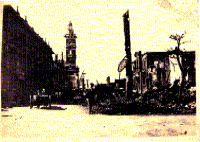 | 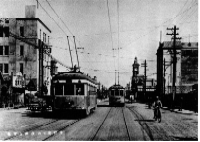 |
| [Hon-cho Dori Avenue] ([Yokohama Taisho University Earthquake Photo Book]) To enlarged figure (46KB) | [Reconstruction of Hon-cho Dori Avenue and streetcars] (Reconstruction Memorial Photo Book) To enlarged figure (62KB) |
| Postcard | Photo |
|---|---|
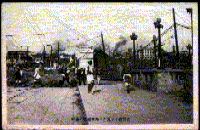 | 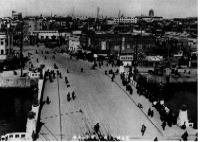 |
| [The devastation of Basyamichi Street as seen from Yoshidabashi Bridge] To enlarged figure (32KB) | [Reconstruction of Kannai as seen from Yoshidabashi Bridge] |
| Drawing | Postcard |
|---|---|
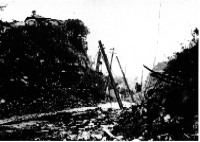 |  |
| [Nogezaka] ("September 1, 1923) Collected from the Great East Japan Earthquake Memorial Photo Book) To enlarged figure (48KB) | [(Yokohama to be revived) Nogecho Street |
| Photo | Postcard |
|---|---|
 | 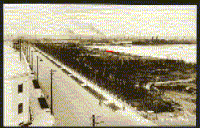 |
[The Great Earthquake of Fire (September 1, 1923) Yokohama Kanagawa Prefectural Office To Customs ([Yokohama Taisho University Earthquake Photo Book]) | [Reconstruction Cell Kaigan Street Lito Yamashita Park] To enlarged figure (24KB) |
Inquiries to this page
Board of Education Secretariat Chuo-toshokan Research Materials Division
Telephone: 045-262-7336
Telephone: 045-262-7336
Fax: 045-262-0054
Email address: ky-libkocho-c@city.yokohama.lg.jp
Page ID: 855-428-335







